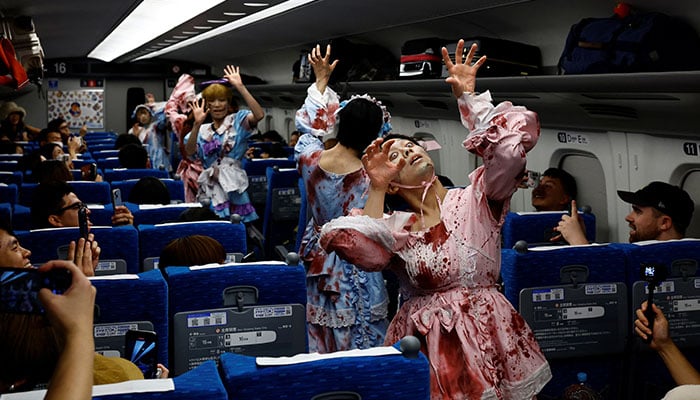
It’s usually a serene two-and-a-half-hour ride on Japan’s famously efficient bullet train.
But the journey quickly descended into a zombie apocalypse, with passengers screaming in terror.
Organisers of Saturday’s adrenaline-filled trip, less than two weeks before Halloween, touted it as the “world’s first haunted house experience on a running shinkansen”.
On board one chartered car of the shinkansen — the Japanese word for bullet train — were around 40 thrill-seekers, ready to brave an encounter with the living dead between Tokyo and the western metropolis of Osaka.
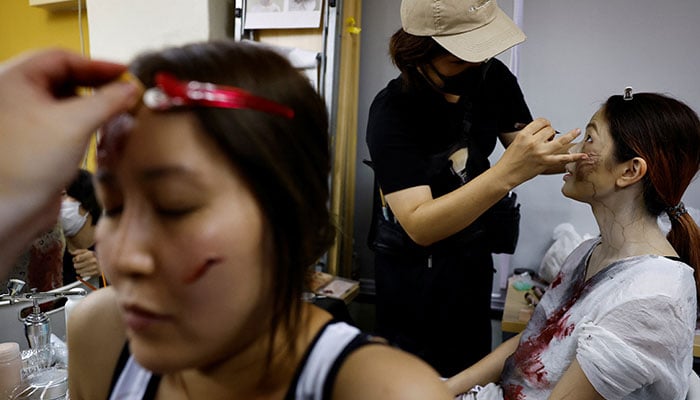
The eerie experience was inspired by the hit 2016 South Korean action-horror movie “Train to Busan”, in which a father and daughter trapped on a moving train battle zombies hungry for human flesh.
All seemed normal at first as the bullet train made a peaceful departure Saturday evening, but it wasn’t long until the first gory attack.
The victims — actors planted in seats by the organisers — jerked in agony and then underwent a terrifying transformation before starting a rampage against their fellow passengers.
Event organiser Kenta Iwana of the group Kowagarasetai, which translates to the “scare squad”, said they wanted to “depict the normally safe, peaceful shinkansen — something we take for granted — collapsing in the blink of an eye”.
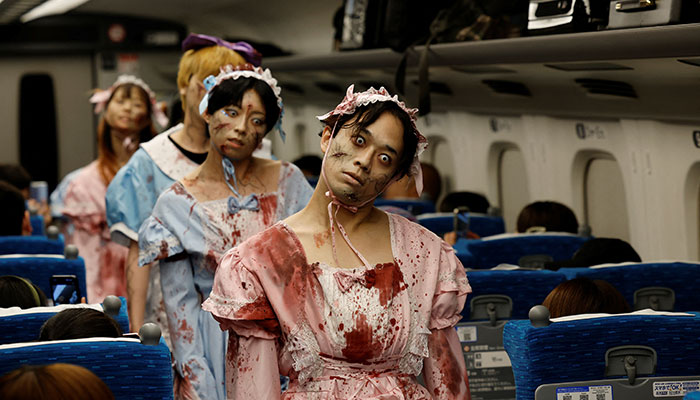
”Like I was in the film” — Sitting next to one of the actors was Joshua Payne, one of many foreign tourists on board.
“I literally felt like I was in the film, just sitting here watching it take place in front of me,” the 31-year-old American told AFP.
“The fact that we can physically go from Tokyo to Osaka right now and have this whole performance at the same time.
I think is really cool and maybe a little bit groundbreaking,” he said.
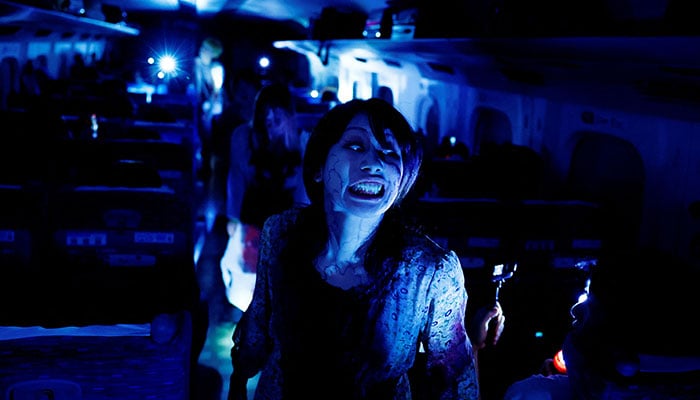
It was far from Central Japan Railway Company’s first experiment with the usually dazzlingly clean, accident-free shinkansen, a Japanese institution that turned 60 this year.
After demand for long-distance travel plunged during the Covid-19 pandemic, the railway operator started renting out bullet train compartments for special events to diversify its business.
A sushi restaurant, a bar and even a wrestling match have been hosted on the high-speed train, and carriages can also be reserved for private parties.
Marie Izumi of JR Central’s tourism subsidiary told AFP that she was surprised by the idea for a zombie-themed commute when Kowagarasetai approached her, thinking it would be “almost impossible to pull off”.
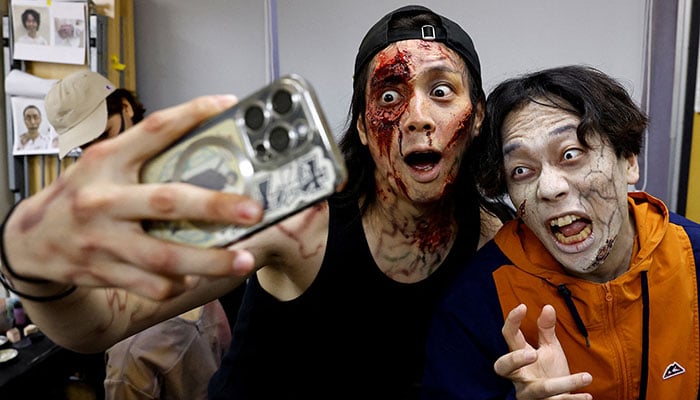
But the event has convinced her of “new possibilities” for the bullet train, Izumi said, adding that concerts and comedy shows might be a good fit in the future.
On Saturday, toy chainsaws and guns were used as props, but depictions of extreme violence and gore that could tarnish the shinkansen’s squeaky-clean reputation were avoided.
To counterbalance the subdued horror, the two-and-a-half-hour tour was peppered with light-hearted performances by zombie cheerleaders, magicians and comedians, including a choreographed dance to Michael Jackson’s “Thriller”.
“Nobody wants to sit tight for such a long time being constantly exposed to horror,” said Ayaka Imaide from Kowagarasetai.
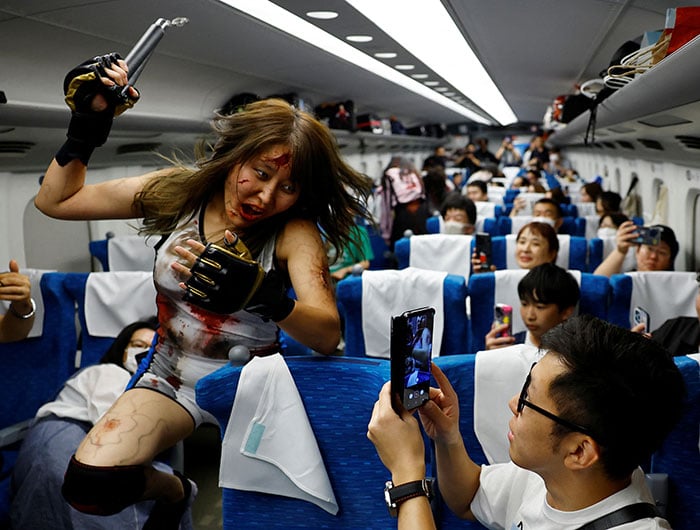
Many aboard the zombie-infested train said the experience alone was worth the ticket price of up to 50,000 yen ($335).
“It was very immersive,” Naohiko Nozawa, 30, told AFP.
“And the appearance of so many different kinds of zombies kept me entertained all the way.



